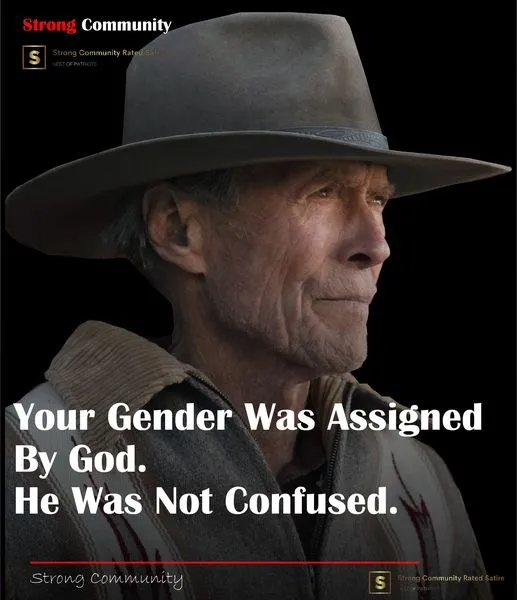
The topic of gender identity is a deeply personal and complex matter, yet it has become a source of significant cultural, political, and even religious debate. Phrases like “Your gender was assigned by God. He was not confused,” commonly seen in public discourse, encapsulate a religious viewpoint that equates biological sex at birth with divine will, implying that deviation from this assignment contradicts a higher plan.
From a faith-based perspective, many who hold to this view argue that one’s gender, as determined by biological factors at birth, reflects a purpose designed by God. The implication is that any challenge to this, whether through transgender identity or non-binary expression, is seen as conflicting with divine intention. Proponents of this stance often rely on traditional religious texts, which they interpret as affirming the notion of binary gender and fixed roles.
On the other hand, the broader social and scientific community continues to emphasize that gender identity is multifaceted, encompassing biological, psychological, and cultural factors. Research shows that gender is not strictly binary but exists on a spectrum, and for many people, their gender identity may differ from the sex they were assigned at birth. This understanding has led to increased recognition and support for transgender individuals, who may seek to align their gender identity with their lived experiences through social, medical, and legal transitions.
The clash between these two viewpoints often creates tension in discussions about human rights, dignity, and the role of faith in public life. Those who view gender as divinely assigned may feel that they are defending their religious beliefs against what they perceive as cultural shifts. Conversely, advocates for gender diversity argue that respecting individuals’ experiences and identities is not only a matter of personal freedom but also essential to promoting inclusivity and equality.
It is important to approach these conversations with empathy, recognizing the deeply held beliefs and personal experiences on both sides. For those who find comfort and clarity in their religious understanding of gender, their faith may play a central role in how they navigate the complexities of modern identity politics. Meanwhile, for those who identify outside of traditional gender norms, the conversation is about living authentically and receiving acceptance in a society that often marginalizes them.
In conclusion, the debate over gender and divine intention is unlikely to be resolved easily, as it touches on deeply personal convictions. However, fostering respectful dialogue between religious communities and advocates for gender diversity is essential in bridging the gap and ensuring that all individuals feel valued and understood.
Leave a Reply